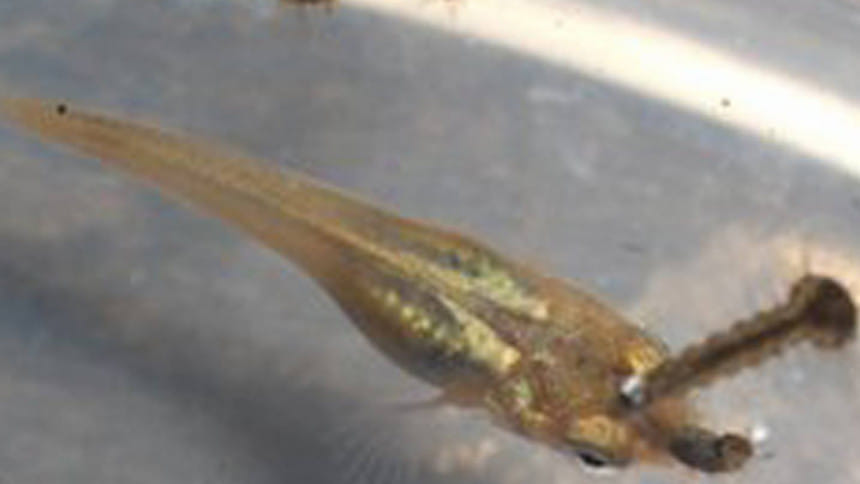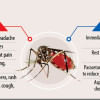Guppy fish an effective dengue mosquito control method

Guppy fish can be one of the five most effective forms of dengue control, as these tiny fish can be placed in water vessels in and around homes, where they will eat the larvae of dengue-transmitting mosquitoes.
The goal is to reduce the mosquito population as much as possible, and lower the incidence of dengue fever in local communities.
The four other recommended methods of mosquito and dengue control are closing and sealing all containers, flushing all water vessels, cleaning the areas surrounding residences, and finally remembering to do these four tasks regularly.
This year, the Vientiane Health Department staged the second Guppy Fish Release Week from June 16-22, aimed at encouraging the public to use guppy fish around their homes to keep dengue at bay. During the wet season, people can obtain the fish from village offices and nearby healthcare centres.
Tadthong village in Sikhottabong district, Vientiane, is regarded as a model community in the use of guppy fish for this purpose, but more villages need to do likewise in order to control the mosquito population citywide.
Many people do not understand the importance of using these tiny fish to prevent mosquitoes breeding. If every household in a community puts these fish in their water containers, health officials believe the number of mosquitoes can be gradually reduced. They like to use the slogan 'no larvae, no mosquitoes, and no dengue fever'.
But the Director of the Vientiane Health Department, Dr Phonepaseuth Ounaphom, says that even though guppy fish are an effective method of dengue mosquito control, we need to use other methods as well to make sure we are not harbouring larvae in our houses and gardens.
So far this year a total of 1,089 cases of dengue fever have been reported in Laos, resulting in two deaths. Epidemiologists believe the incidence of dengue will rise if the five recommended methods of dengue control measures are not fully implemented.
The World Health Organisation says the incidence of dengue has grown dramatically around the world in recent decades. Some 2.5 billion people – two fifths of the world's population – are now at risk of dengue. The WHO currently estimates there are 50 million dengue infections worldwide each year.
Cambodia
As of 20 March 2018, a total of 247 suspected dengue cases had been reported for the year.
In weeks 10 and 11, there were 209 and 247 new suspected dengue cases respectively. This number is similar to the three-year threshold (2015-2017).
China
As of 28 February 2018, a total of 16 dengue cases had been reported and is consistent with trends in the same period observed between 2013 and 2017.
Malaysia
In week 11, 2018, a total of 1,079 dengue cases and two deaths were reported. The number of cases decreased by 6.4 percent compared to the previous week.
Philippines
A total of 15,599 dengue cases were reported nationwide from January 1 to February 24, 2018.
Singapore
As of March 17, 2018, a total of 39 dengue cases had been reported.
Vietnam
As of February 18, 2018, there were 12,360 cases of dengue and one death. Compared to the same period in 2017 (19,437 cases and seven deaths), the cumulative number of cases decreased by 36 percent.
Copyright: Vientiane Times/ Asia News Network

 For all latest news, follow The Daily Star's Google News channel.
For all latest news, follow The Daily Star's Google News channel. 








Comments